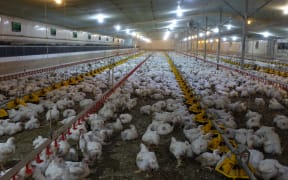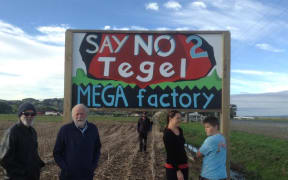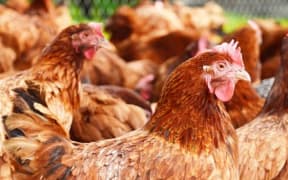A small Northland community is ecstatic plans to build what would have been the biggest chicken farm in the country have been canned.
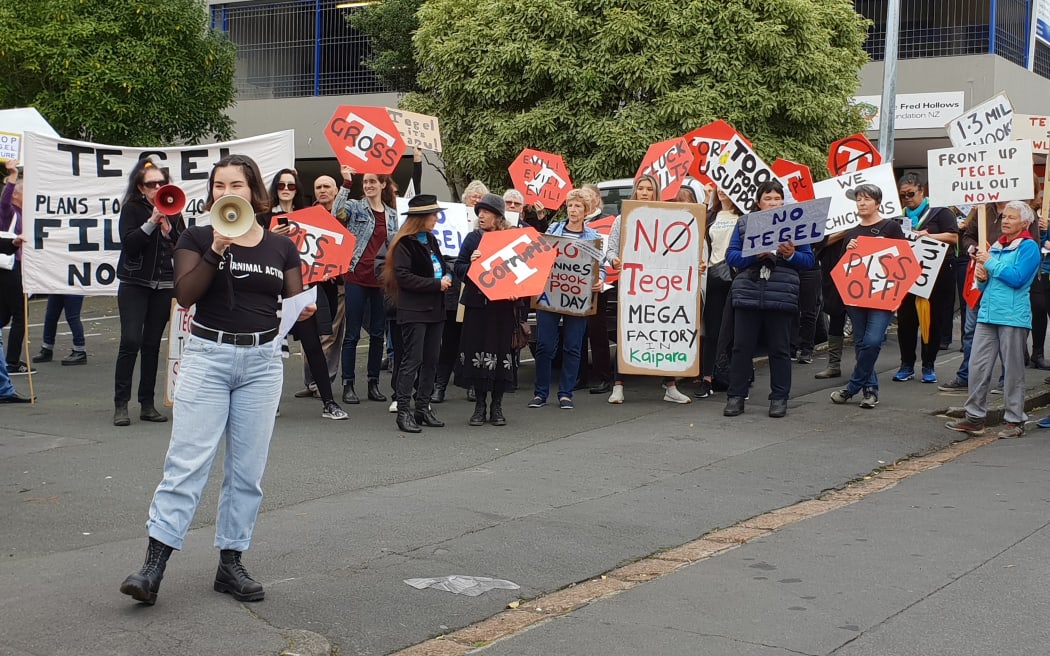
Kaipara locals, iwi and animal rights activists protesting against the planned chicken farm at Tegel's Auckland headquarters earlier this month. Photo: RNZ/ Jessie Chiang
The Overseas Investment Office (OIO) has turned down Tegel's bid to buy more than 200 hectares of former dairy land at Arapohue, near Dargaville.
There would have been nine million chickens a year, filling 32 sheds, across 253 hectares in rural Northland.
But mass opposition from the Kaipara community and the local authorities' reluctance to issue resource consents has made the proposal too risky for the government to approve.
A woman who would have lived just over a kilometre from the site is delighted.
"We are just so relieved," Rosie Donovan said.
"This fight has taken over our lives since early February, when we were first notified about it. So it's a huge weight off our shoulders."
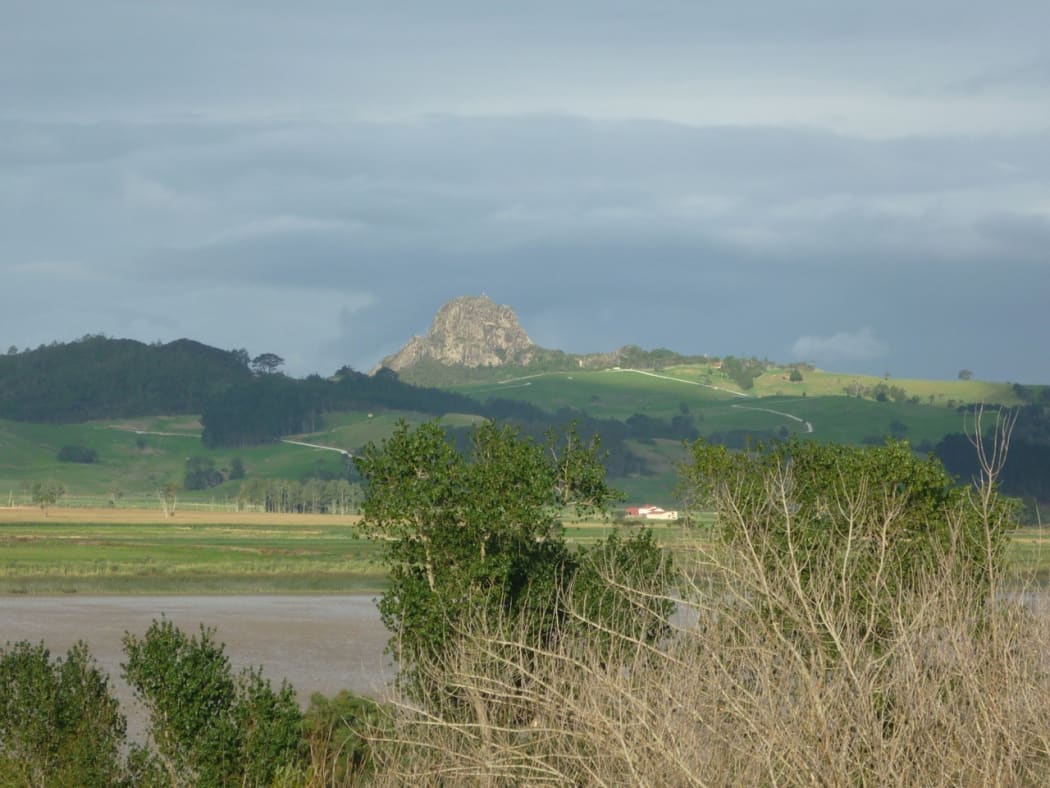
A view of Maungaraho near Arapohue. Photo: Supplied
The potential odour from the farm and pollution had residents worried, she said, especially as it was next to the Kāpehu Marae and near to two schools.
"It was also on a flood plain, right next to the Northern Wairoa River, so there were risks with flooding."
Ms Donovan is thrilled the community's quick thinking and action helped to influence the outcome.
The farm would have bordered the Kāpehu Marae, dwarfing its urupā.
The marae's chair, Margaret Mutu, also expressed relief the farm has been given the no-go.
A farm of that scale would have caused massive health problems, she said.
"We would have been stunk out of the place, we would not have been able to breathe the air, it would have been so polluted.
"It would have killed our people who already have compromised lung capacity."
She said the company was trying to get away with a "very dangerous operation".
Ms Mutu said it's time to boost smaller-scale farmers, not back foreign-owned companies like Tegel.
Kaipara District Council and Northland Regional Council recommended declining the consents for the farm.
But Kaipara Mayor Jason Smith said the rejected farm was a blow to an already-deprived community.
"This particular project was not without its challenges," Dr Smith said.
It's time the government stepped up support of Kaipara through its provincial growth fund, Dr Smith said.
But projects such as this would bring important employment opportunities and increased investment into the area.
"It would send out a signal that we're open for business," he said.
Mr Smith told Morning Report there are concerns that the government is actively discouraging investment in the district.
"We're not seeing the support that other parts of Northland are seeing from central government in this space."
"We've not seen any investment from the Provincial Growth Fund and now a large potential employer into our community is being denied, he said.
"The proposal on the table was talking about 34 jobs."
This makes Tegal a significant potential employer in Kaipara, he said.
"Our unemployment rate would be running probably at about 6 percent in the community."
Just a few days ago, the OIO approved a takeover offer for all Tegel shares by a Philippines poultry producer, Bounty.
Because Tegel's foreign owned, it's subject to rules that require OIO approval to buy any sensitive land over five hectares.
Land Information Minister Eugenie Sage agrees the Kaipara region needs jobs.
But she said the wide opposition to the farm, which was to built on sensitive land, outweighed the 18-20 permanent jobs it could have created.
"New Zealanders are leaders in terms of farming," she said.
"Overseas investment in rural land has to deliver substantial and identifiable benefits, it can't just be on par with what New Zealand is already doing."
The sensitive land could have ended up sitting empty, Ms Sage said.
"With considerable uncertainty over whether resource consents could be granted, there was no certainty that the jobs and the increased exports that the company was saying would be associated with the land purchase, would actually be delivered."
A Tegel spokesperson Liam Baldwin said the decision was disappointing.
The farm design was environmentally friendly and efficient, which would be a significant step for chicken farming in New Zealand, he said.
Ms Sage said Tegel is able to propose a farm elsewhere but it would need to meet the same standard.

